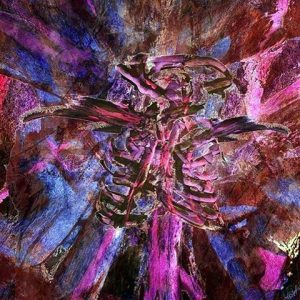Note (9-18-24): An expanded version of this post is included in Greg Dember’s book, Say Hello to Metamodernism!.
The Ben Folds Five was an American piano-based rock trio led by, you guessed it, a guy named Ben Folds (with Robert Sledge and Darren Jessee). Emerging from Chapel Hill, North Carolina, during the mid-nineties, the band resisted the time-period’s prevalent macho, mono-chromatic angst and crafted a sound that was equal parts sensitive and rambunctious — a sound that Ben Folds himself described as “punk rock for sissies.” The band could be considered early metamodern, just a little bit ahead of, and perhaps paving the way for, the big wave of “indie” music that hit in the 2000s and that we feel is, largely, emblematic of metamodernism.
The Ben Folds Five straddled a lot of dichotomies. They were Southern, but they were suburban Southern, not country southern. The music was often aggressive, fast and furious, but it was built around virtuosic and sometimes delicate piano playing. Topically, the songs were situated in the context of the punk rock subculture, but more often than not were about the community aspect of that culture, not about its complaints and anger.
The song we have featured here, Philosophy, is one we feel is particularly metamodern in its message. We’re not claiming that Ben Folds explicitly had any of this terminology or even the underlying concepts in mind when he wrote the song, but he does seem to end up touching on all of the earlier epistemes (Tradition, Modernism, Postmodernism), and settles on metamodern answers that work by personalizing the contradictions he explores. Let’s take a look, line by line:
Won’t you look up at the skyline
At the mortar, block, and glass
An urban cityscape, the technological product of modernism.
And check out the reflections in my eyes
The singer takes these icons of modernism, that might usually come across as alienating, and makes them intimate and personal, as reflections in his eyes.
See they always used to be there
Even when this was all grass
And I sang and danced about a high-rise
He seems to be rejecting the commonly made split between nature/tradition and technology.
And you were laughing at my helmet hat
Laughing at my torchGo ahead and laugh all you want
I got my philosophy
And I trust it like the ground
That’s why my philosophy
Keeps me walking when I’m falling down
Defying the punk-rock nihilistic postmodern mistrust of philosophy, of attempts to make sense.
I see that there is evil
And I know that there is good
And the in-betweens I never understood
Acknowledging the entire moral spectrum, including the gray area between the poles, which, being harder to understand may be the most intriguing to the singer.
Would you look at me I’m crazy
But I get the job done
I’m crazy but I get the job done
Acknowledging postmodern chaos, but not being stuck in it: he gets the job done.
So go ahead and laugh all you want
I got my philosophy
And I trust it like the ground
That’s why my philosophy
Keeps me walking when I’m falling down
Accepting (“go ahead”) the postmodern tendency to scoff (”and laugh all you want”) at any attempt at a “philosophy” or notion of solid “ground” and yet ultimately defying that cynicism. If he were expressing a modernist perspective, he might insist that the philosophy was true for all people, but instead he only justifies it as being useful for himself.
I pushed you cause I loved you guys
I didn’t realize
That you weren’t having fun
And I dragged you up the stairs
And I told you to fly
You were flapping your arms
Then you started to cry, you were too high
He recognizes a mistake he’d made in attempting to universalize his philosophy. It’s true, but not necessarily true for everybody, and it doesn’t have to be true for everybody for it to be important. This may be the emotional heart of the song, because it’s where the singer reveals why all of this is important to him.
Now you take this all for granted
You take the mortar, block, and glass
And you forget the speech that moved the stone
Valuing modernist projects, but reaffirming the importance of the human actors behind them.
And it’s really not that you can’t see
The forest from the trees
You just never been out in the woods alone
Asserting the importance of individual felt experience.
So you can laugh all you want to
But I’ve got my philosophy
And I love you you’re my friend
But you got no philosophy
Now it’s time for this song to end
In the end what matters most to the singer is his friendships, even with people who don’t share his paradigm. Metamodernism accommodates paradigm conflicts by falling back on relationship and felt experience.
Again, we don’t think for a minute that Ben Folds had any sort of theory of metamodernism, or any -ism in mind as he wrote this song, but we feel it (among many others from his band’s catalog) is a beautiful example of the metamodern sensibility that was nascent in popular culture in the late nineties.




